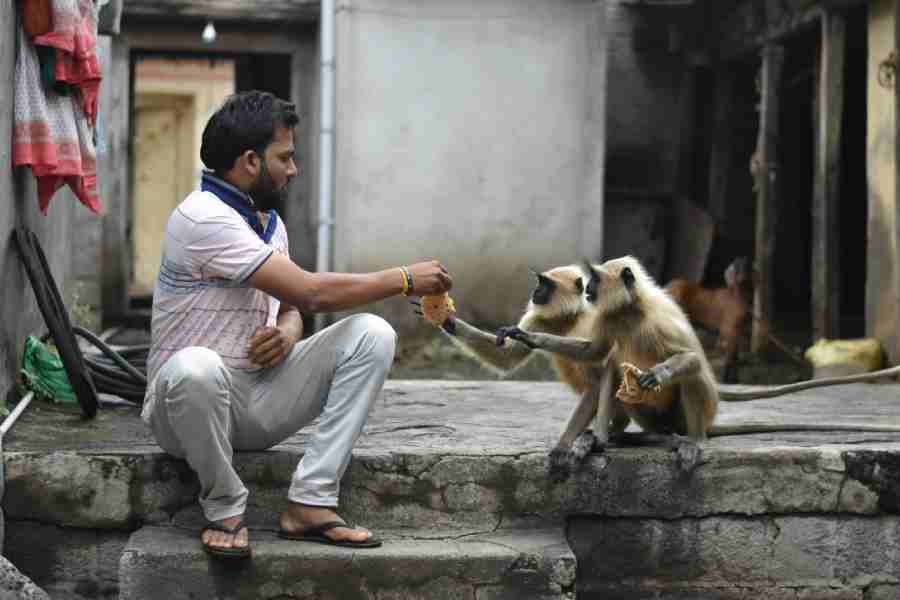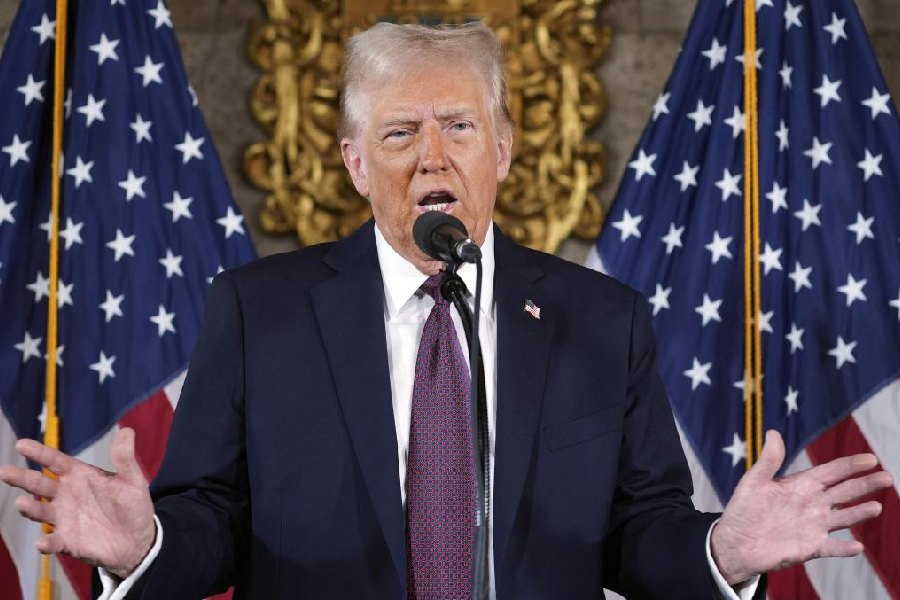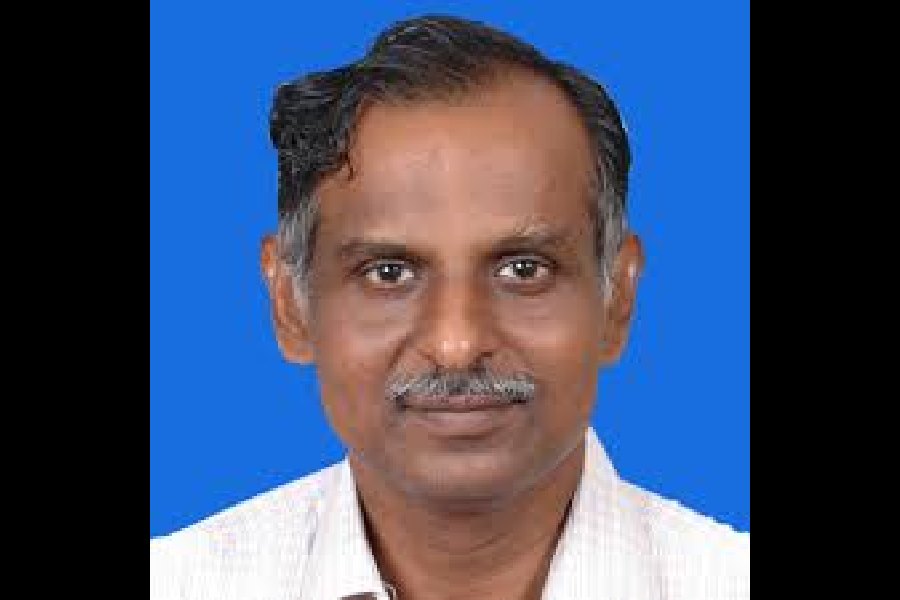Man versus beast
Sir — It is remarkable how several ‘human’ traits are shared by other species. Recent reports revealed the heartwarming story of a monkey who has been taken in by a family in Raebareli after being abandoned by her troop. Since then, the monkey, Rani, is not only helping with chores but also picking up other human habits. There were other reports about an elephant pranking a man with a playful sense of humour and bears carefully choosing scenic spots for their nests. While animals display traits that are decidedly human, Homo sapiens seem bent on mindless killing as is evident from the wars and conflicts around the world. Perhaps it is time we re-evaluated the meanings associated with the phrases, ‘being human’ and ‘bestial behaviour’.
Arundhati Saha, Calcutta
Hurdles galore
Sir — It is alarming that nearly one-third of medical insurance claims are partially approved without valid reasons and only one-fourth are processed smoothly (“The Great Mediclaim Burnout”, Jan 3). This is in spite of the fact that there is currently no cap on health insurance premiums in India and these have increased by 25-30% between 2022 and 2024. Over and above this, these premiums are subject to a steep goods and services tax of 18%. The report shows that the insurers use arbitrary processes designed to line their pockets at the expense of the insured. It is high time the government introduced rules for efficient claims processing.
Dipak Thakker, Navi Mumbai
Sir — In a circular last year, the Insurance Regulatory and Development Authority of India had said that insurers must grant the final authorisation within three hours of receiving the receipt of the discharge request from the hospital. Yet, over 21,500 people interviewed in a survey felt that insurers delay claim settlement to frustrate policyholders, leading to them accepting lower amounts. The IRDAI should ensure transparency and real-time tracking of claims.
Debaprasad Bhattacharya, Calcutta
Hostile campuses
Sir — The Supreme Court’s direction to the University Grants Commission to collate complaints raised about caste discrimination on campuses is pertinent and timely (“SC glare on campus caste bias”, Jan 4). Caste discrimination plays out in campuses in a myriad overt and covert ways. The systematic humiliation of students belonging to scheduled castes and scheduled tribes robs them of their dignity. The abject failure of the higher education authorities to implement the UGC (Promotion of Equity in Higher Educational Institutions) Regulations framed in 2012 is indicative of their complacency towards caste biases. Greater representation of the marginalised in HEIs will help create a more supportive learning environment.
G. David Milton, Maruthancode, Tamil Nadu
Sir — Calling caste-based discrimination in educational institutions as a sensitive issue, the Supreme Court has said that it will devise an effective mechanism to combat the same. Several students have killed themselves after facing caste-based discrimination. The apex court bench has rightly questioned the UGC over the delay in coming up with new regulations and sought the Centre’s response on the issue.
S.S. Paul,
Nadia
Important lesson
Sir — The decision of a State-run, Bengali medium school in Santoshpur to introduce spoken English courses for its students is a good one. This will enhance the confidence of students and increase their chances of finding employment (“Spoken English lessons at school”, Jan 3).
S.K. Javed Hossain, Calcutta
Sir — Students from government schools who leave West Bengal for higher studies are often unable to communicate well in English. Introducing spoken English courses in these schools is thus necessary.
Junainah Javed, Calcutta
Sir — Those studying in Bengali-medium schools often struggle in their careers owing to their inability to communicate in English despite being qualified for various positions. Being able to speak fluently in English will significantly improve their career prospects.
Santi Pramanick, Howrah
Risky tipple
Sir — The article, “US call for cancer alert on alcohol” (Jan 4), is concerning. Social drinking has become an integral part of Indian cities. According to National Family Health Survey-4, 29.2% men and 1.2% women in India consume alcohol. In the meantime, cancer rates have surged in India. This is alarming. The Indian government should make people aware of the ill effects of alcohol consumption.
Rituparna Mahapatra, Birbhum
Sir — It is laudable that the United States surgeon-general has suggested that alcohol should carry a warning label as it is a leading and a preventable cause of cancer. But such warnings are unlikely to be effective in India where people continue to smoke despite the warning signs on cigarette packets. The only solution is to put an end to the sale of cigarettes and alcohol. However, no state government will agree to this as these sales are an important source of their revenue.
N. Mahadevan, Chennai
Take a walk
Sir — The benefits of walking for countering lifestyle diseases are well-known. It is recommended that one walks 10,000 steps a day. This helps the body maintain mobility and coordination, besides controlling blood sugar levels. Brisk walking is believed to aid the heart and the lungs. But after a certain age, brisk walking is not possible. In such cases, walking slowly is better than not walking at all.
K.V. Seetharamaiah, Bengaluru










